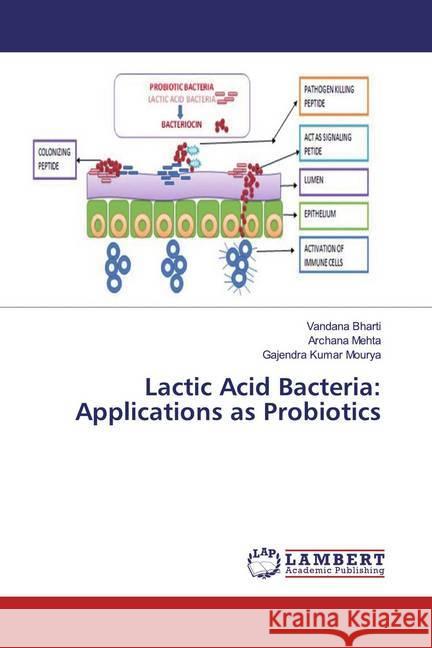Lactic Acid Bacteria: Applications as Probiotics » książka
Lactic Acid Bacteria: Applications as Probiotics
ISBN-13: 9786139849994 / Angielski / Miękka / 2018 / 208 str.
Probiotics are defined as microbial cell preparations or components of microbial cells, when administered in adequate amounts confer a beneficial effect on the health and well-being of the human (Sekhon and Jairath, 2010). The general criteria that have been used for the selection of probiotics are tolerance to gastrointestinal conditions (acid, phenol and bile), ability to adhere to the gastrointestinal mucosa, competitive exclusion of pathogens, production of anti-microbial substances, absence of toxicity , viability and activity in delivery vehicles (Ouwehand et al., 2002). The inhibitory mechanisms of probiotic are including production of antimicrobial compound, antagonisms for nutrients, binding with receptor in the intestines, production of inhibitory compound such as lactic acid, bacteriocin, cytokines and butyric acid (Walker 2008). The antimicrobial compound work as signaling peptide to improve immune function and stimulate immune modular cell. Lactic Acid Bacteria (LAB) are mostly used as probiotic microorganisms.











